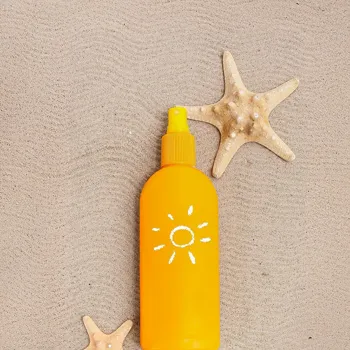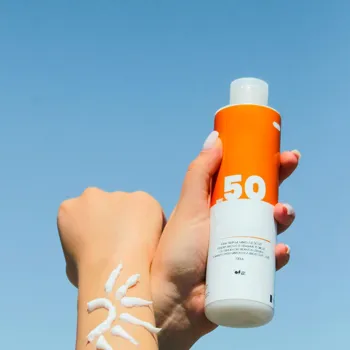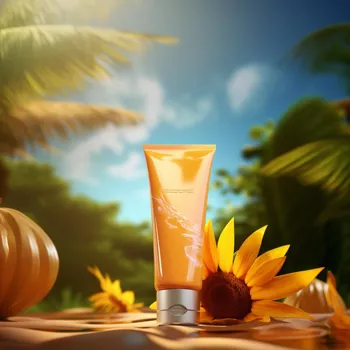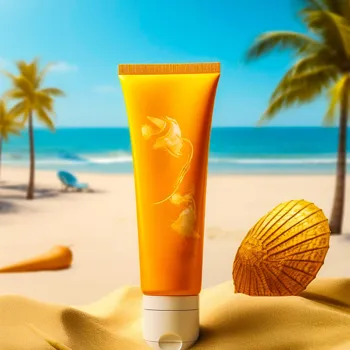Protect Your Skin: Guide to Choosing Sunscreen for Indian Skin. Decode sunscreen types & find your match. Read on!
The Indian summer is no joke, friends! The sun beats down with a vengeance, and if you're
not careful, your skin will pay the price. We're talking sunburn, premature aging, dark spots – the whole shebang. That's where sunscreen comes in, your trusty shield against the sun's harmful rays.

But with so many options on the market, choosing the right one can feel like navigating a Mumbai local train during rush hour. Don't worry, we're here to help you decode the sunscreen aisle and find the perfect match for your skin type.
Sunscreen essential for Indian skin due to UVA and UVB rays
First things first, let's understand why sunscreen is so important, especially for us Indians. Our skin, while blessed with melanin, is still susceptible to sun damage. The sun emits two types of ultraviolet (UV) rays that can harm our skin: UVA and UVB.

UVB rays are responsible for sunburn, while UVA rays penetrate deeper into the skin and contribute to premature aging, like wrinkles and fine lines. Sunscreen works by creating a barrier on your skin that either absorbs or reflects these UV rays, protecting you from their harmful effects.
In the Indian context, where we are exposed to intense sunlight for a good portion of the year, sunscreen is not just a summer essential, it's a year-round necessity. So let's get started, shall we?
Identify your skin type to choose the right sunscreen
Now, let's get down to the nitty-gritty: figuring out your skin type. Is it dry, oily, combination, or sensitive? Knowing this is crucial because the wrong sunscreen can lead to breakouts, irritation, or just plain discomfort.
If your skin feels tight and flaky, especially after washing, you likely have dry skin. Oily skin is characterized by a shiny appearance, enlarged pores, and a tendency to break out. Combination skin is a mix of both, with an oily T-zone (forehead, nose, and chin) and dry cheeks.
Sensitive skin is easily irritated by certain products and can react with redness, itching, or burning. Once you have identified your skin type, you'll be able to make an educated decision while choosing the right sunscreen and avoiding the potential of ruining your skin.
Choose oil-free, non-comedogenic, or mattifying sunscreen for oily skin
For those with oily skin, the goal is to find a sunscreen that won't clog your pores and make you feel like you've dipped your face in a vat of oil. Look for sunscreens labelled "oil-free," "non-comedogenic" (meaning they won't clog pores), or "mattifying.
" Gel-based or lightweight lotion formulations are also good choices, as they tend to be less greasy than creams. Ingredients like zinc oxide and titanium dioxide are generally safe for oily skin, but opt for micronized or nano-sized versions to avoid a white cast.
You can also consider sunscreens that contain ingredients like salicylic acid or niacinamide, which can help control oil production and prevent breakouts. Remember to cleanse your face thoroughly before applying sunscreen and reapply every two hours.
Hydration is key for dry skin, choose sunscreen with moisturizing ingredients
If you have dry skin, hydration is key. Look for sunscreens that contain moisturizing ingredients like hyaluronic acid, ceramides, or glycerin. Cream-based formulas are generally better for dry skin than gels or lotions, as they provide more hydration.

You can also consider tinted sunscreens, which often contain moisturizing ingredients and can even out your skin tone. Avoid sunscreens that contain alcohol or other drying ingredients, as these can exacerbate dryness.
Remember to apply sunscreen after moisturizing and reapply throughout the day, especially if you're spending time outdoors. Try to use a gentle cleanser and a good moisturizer overnight, the dryness will not bother you as much.
Choose sensitive skin-friendly sunscreens to avoid irritation, opt for mineral formulas
For those with sensitive skin, it's all about finding a sunscreen that won't cause irritation. Look for sunscreens that are labelled "fragrance-free," "paraben-free," and "hypoallergenic.

" Mineral sunscreens containing zinc oxide or titanium dioxide are generally well-tolerated by sensitive skin, as they are less likely to cause allergic reactions. Avoid sunscreens that contain chemical filters like oxybenzone and avobenzone, as these can be irritating for some people.
Before applying sunscreen to your entire face, do a patch test on a small area of skin to see if you have any reaction. If you experience any redness, itching, or burning, discontinue use immediately.
Choose high SPF & broad-spectrum for UV protection
Choosing the right sunscreen also involves understanding SPF and broad-spectrum protection. SPF stands for Sun Protection Factor and measures how well a sunscreen protects you from UVB rays. The higher the SPF, the more protection it offers. However, SPF is not a linear scale.

SPF 30 blocks about 97% of UVB rays, while SPF 50 blocks about 98%. Dermatologists generally recommend using a sunscreen with an SPF of 30 or higher. Broad-spectrum protection means that the sunscreen protects you from both UVA and UVB rays.
Make sure your sunscreen is labelled "broad-spectrum" to ensure you're getting comprehensive protection. Don't be fooled by the number; apply enough to cover your skin and do so before heading out.
Guide to choosing the right sunscreen in India for your skin
So, there you have it – a comprehensive guide to choosing the right sunscreen for your skin type in India. Remember, sunscreen is your best friend in the fight against sun damage.

By understanding your skin type, choosing the right formulation, and applying it liberally and consistently, you can protect your skin and keep it looking healthy and youthful for years to come. Don't let the Indian sun get the best of you!
AI Generated Content. Glance/InMobi shall have no liability for the content













